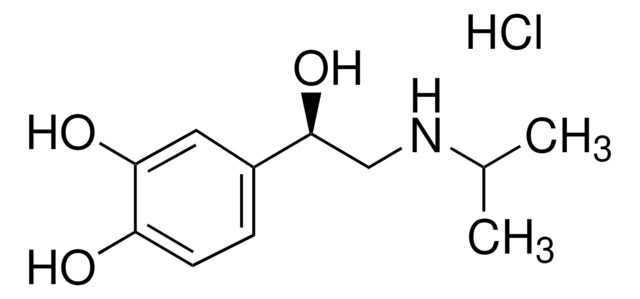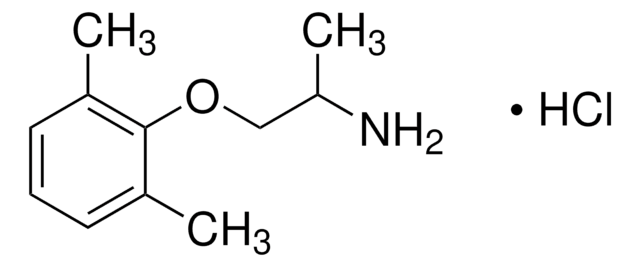40543
(±)-Propranolol hydrochloride
analytical standard
Synonyme(s) :
(±)-1-Isopropylamino-3-(1-naphthyloxy)-2-propanol hydrochloride, DL-Propranolol hydrochloride
About This Item
Produits recommandés
Qualité
analytical standard
Niveau de qualité
Pureté
≥98.5% (HPLC)
Durée de conservation
limited shelf life, expiry date on the label
Technique(s)
HPLC: suitable
gas chromatography (GC): suitable
Impuretés
≤1.0% water
Application(s)
forensics and toxicology
pharmaceutical (small molecule)
Format
neat
Température de stockage
2-8°C
Chaîne SMILES
Cl.CC(C)NCC(O)COc1cccc2ccccc12
InChI
1S/C16H21NO2.ClH/c1-12(2)17-10-14(18)11-19-16-9-5-7-13-6-3-4-8-15(13)16;/h3-9,12,14,17-18H,10-11H2,1-2H3;1H
Clé InChI
ZMRUPTIKESYGQW-UHFFFAOYSA-N
Informations sur le gène
human ... ADRB1(153) , ADRB2(154)
Vous recherchez des produits similaires ? Visite Guide de comparaison des produits
Application
Produits recommandés
Faites votre choix parmi les versions les plus récentes :
Déjà en possession de ce produit ?
Retrouvez la documentation relative aux produits que vous avez récemment achetés dans la Bibliothèque de documents.
Les clients ont également consulté
Notre équipe de scientifiques dispose d'une expérience dans tous les secteurs de la recherche, notamment en sciences de la vie, science des matériaux, synthèse chimique, chromatographie, analyse et dans de nombreux autres domaines..
Contacter notre Service technique








